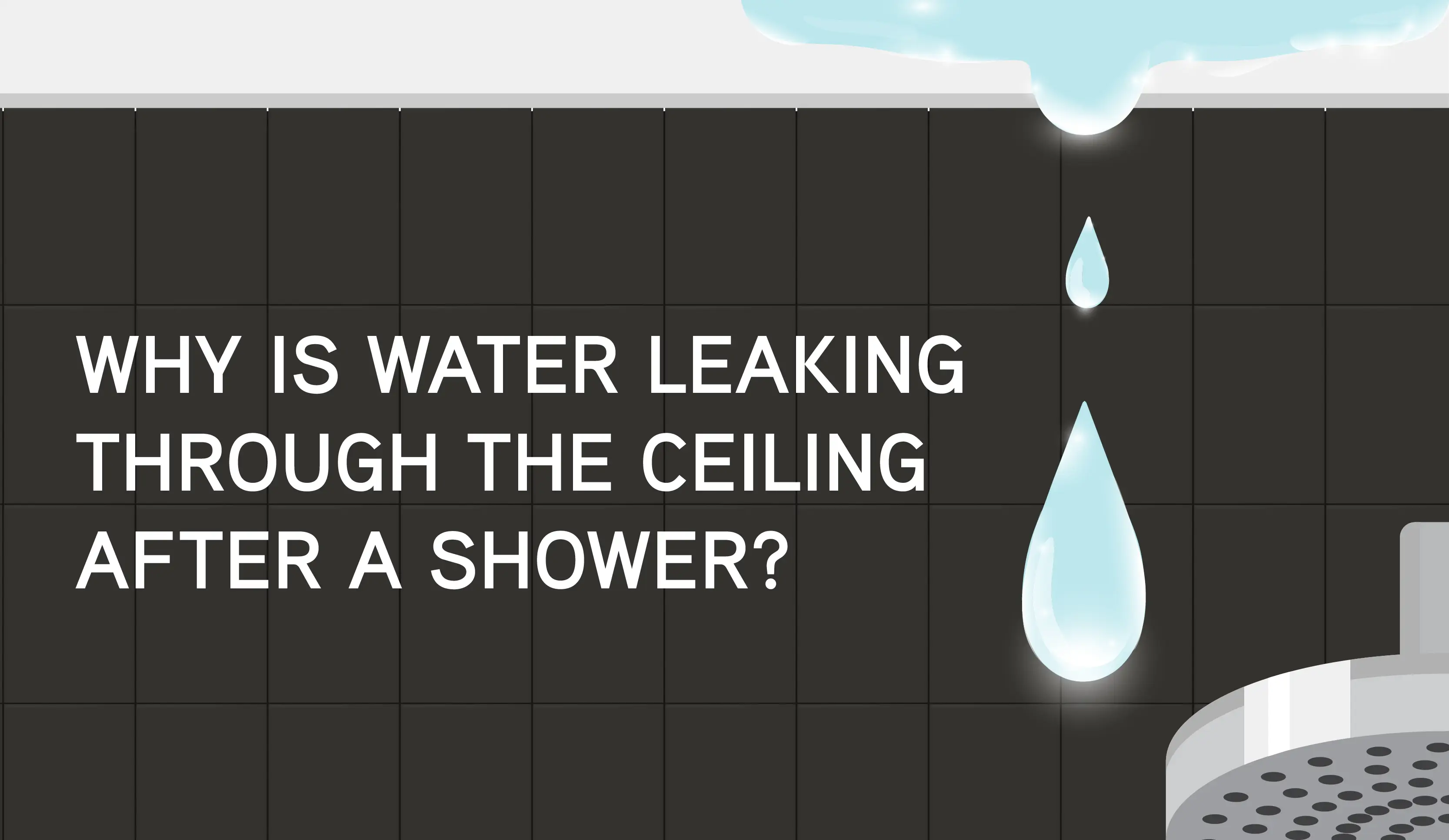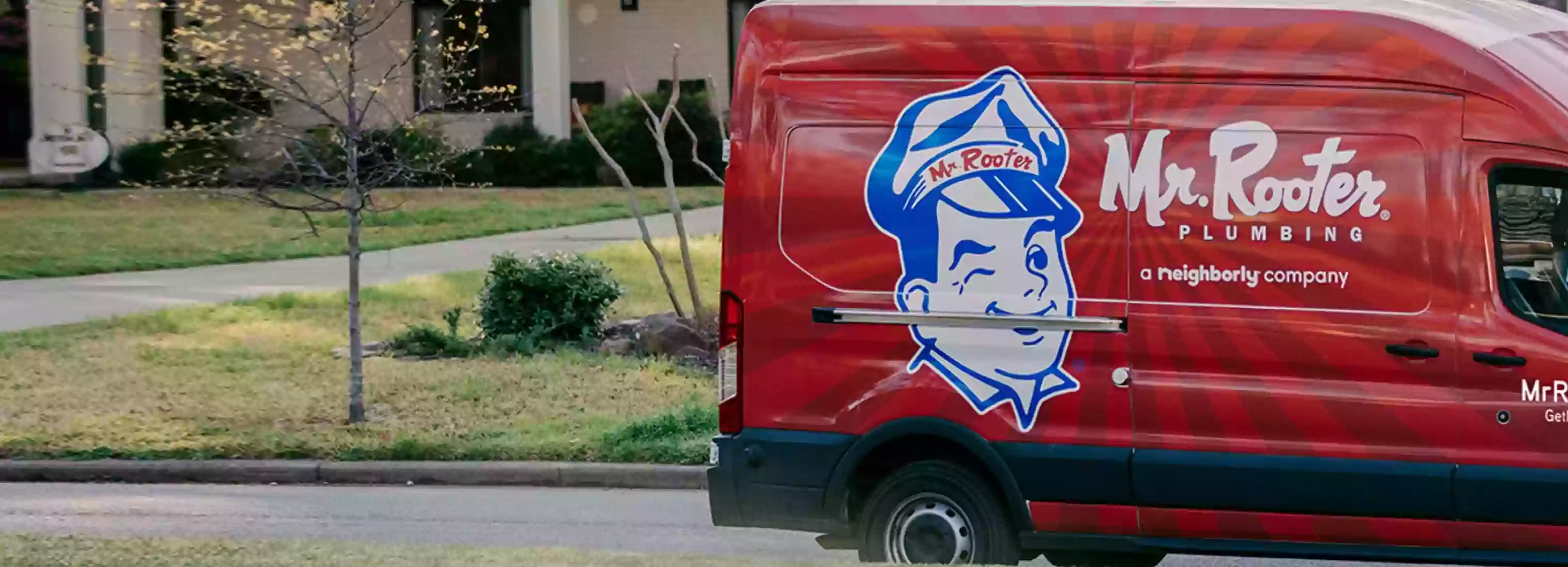Why Is Water Leaking Through the Ceiling After a Shower?

Does your downstairs ceiling leak after someone takes a shower upstairs? Do you find wet spots and water stains directly beneath your bathroom?
Shower leaks are common and can be fixed by an experienced plumber. But you need to act fast. Even a small shower leak can lead to significant water damage, wood rot, and mold growth.
Thankfully, Mr. Rooter® Plumbing has experienced plumbers ready and waiting to handle your ceiling leak, any time, any day. We'll show you how to identify the source of a ceiling leak, detail how we fix leaky showers, and answer some commonly asked questions in the following sections:
- How to Determine the Source of the Leak
- How Plumbers Fix a Leaky Shower
- Shower Leak FAQs
How to Determine the Source of Your Ceiling Leak
When your ceiling is leaking beneath your upstairs bathroom, the shower or tub is likely the culprit. However, there are a few other potential causes. Before you call a plumber, it's best to identify the source of the leak.
Here are five possible causes of leaks and how they manifest:
1. Leaking Water Pipe
Broken or loose pipes are a common cause of ceiling leaks. If you can see the pipes, check if they are damaged. If you see water dripping, this is likely the cause of your leak. If your pipes are behind a wall, contact a plumber to have them investigate.
2. Damaged Bathroom Tile
Bathroom tiles do more than upgrade your room's look; they prevent water from seeping into the walls and floor. If your tiling is loose or damaged, water can seep into the space between your upstairs floor and downstairs ceiling, even if there’s no leak. Just a little water splashed out of the shower onto a broken tile can damage your ceiling.
3. Faulty Shower Faucet
Does your showerhead or bathtub faucet drip after you turn it off? While it may seem harmless, this dripping can waste hundreds of gallons of water each week, leading to leaks inside the wall. Dripping taps are usually caused by damaged O-rings, washers, or gaskets.
4. Clogged Drain
When your shower drain gets clogged, it can cause the water to go elsewhere. If the tub or pan overflows, it can lead to a leaky ceiling.
5. Leaking Drain Gasket
Over time, the rubber gasket under your shower drain can dry out and crack, resulting in leaks.
Determining the source of the leak can take some time for an untrained homeowner. If you can't identify the cause quickly, a plumber can pinpoint and fix it for you.
How Plumbers Fix a Leaky Shower
When a plumber arrives to fix your leaky shower, they'll take some or all of the following steps:
- Before beginning repairs, the plumber will turn off the water supply at the main shut-off valve.
- If the leak is near the faucet or inside the walls, they'll try tightening the supply line connector joints. If this is successful, it minimizes the amount of work needed and prevents them from having to open up the wall.
- If the substrate behind the shower tile is water-damaged, they will fix the source of the leak and may recommend that you install new substrate and tile.
- If a clog is to blame, the plumber will run a plumber's snake through the shower drain to remove any blockages.
- The plumber may also reseal the shower drain. This involves removing the old gasket and cleaning any residue or old sealant. Next, they'll install the new gasket and a silicone sealant to waterproof the area before putting the drain back in place.
Shower Leak FAQs
Will a wet ceiling dry on its own?
Over time, a wet ceiling will dry on its own. However, the longer it takes to dry, the higher your risk of mold growth, drywall damage, and other issues. If you notice that your ceiling is wet, you should call a plumber immediately. They'll investigate the area to determine the cause of the leak.
To help your ceiling dry faster, you can do the following:
- Circulate the air: Open your windows and turn on the fan to improve airflow. This works best in dry climates.
- Use a dehumidifier: If you live in a humid area, a dehumidifier can help pull some of the moisture out of your drywall.
- Dry the area with towels: If you can reach the ceiling, use towels to sop up some moisture from it.
- Replace the affected ceiling portion: Even if you do your best to dry the ceiling, you may need to replace part of it. Hire a contractor to help you safely install new drywall before mold growth starts.
- Monitor for more damage: In the weeks following the repair, keep an eye on the area to ensure the leak doesn't return and that no mold growth has started.
Though these tasks can help you manage water damage from a shower leak, hiring a plumber is the only way to stop it from happening again. Plumbers can identify the source of the leak and fix it to ensure that you don't have to deal with any more damage.
Stop That Ceiling Leak! Call Your Local Mr. Rooter Plumbing
Still can't figure out the cause of your ceiling leak? It's time to call a plumber. Regardless of the leak's complexity, our plumbers have seen it before and can handle it efficiently. We'll work quickly to diagnose your shower leak and diligently repair it to ensure it doesn't happen again. Connect with us online or call now to stop that leak for good.
 Click to call
Click to call


